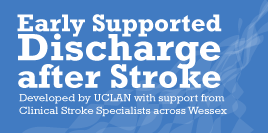- Cognitive training can improve alertness and sustained attention - TRUE
- Cognitive training has been shown to improve activities of daily living after stroke - FALSE
- Attention problems are more common in patients with damage to the left side of their brain - FALSE; they are more common in patients with damage to the right side of their brain.
- Outcomes of interest included only improvement in attentional ability, both alertness and sustained attention - FALSE; other outcome measures included functional disability, as measured by the effect of cognitive deficits on daily life and independence in activities of daily living (e.g. Barthel Index)
- What are the implications from the systematic review for clinical practice and future research? Implications for practice are that the routine use of attentional training cannot be supported or refuted by evidence from controlled trials. Implications for research are that further evaluation is needed on stroke patients randomly allocated to intervention and control groups with larger samples and blinded assessment of outcome. There also needs to be consensus on appropriate outcome measures and these measures need to include indicators of both impairment (the attention deficit) and the effect of the deficit on daily life.



